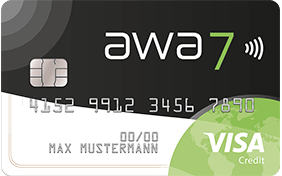Emergency Fund: Why Building a Safety Net is Essential for Peace of Mind
Advertiser
An emergency fund is essential for financial stability, serving as a dedicated savings pool for unexpected expenses. It ensures peace of mind by covering unforeseen costs without high-interest debt, helping maintain long-term financial goals while improving overall financial security.
Emergency funds play a crucial role in ensuring financial stability. These funds act as a vital safety net, providing support during unforeseen circumstances. If you’ve ever wondered why an emergency fund is essential, consider how it protects you from life’s financial surprises. In this article, we’ll explore how to quickly build your emergency fund, common mistakes to avoid, and the peace of mind an emergency fund can offer.
Why You Need an Emergency Fund for Financial Security
Financial security is something everyone aspires to achieve, and having an emergency fund is a critical component. This safety net ensures you’re prepared for unforeseen expenses, such as medical emergencies or vehicle repairs. Having this buffer protects you from resorting to credit cards or loans, which can lead to debt.
Protecting Against Unexpected Events
An emergency fund provides peace of mind by allowing you to manage unexpected events without financial strain. Whether it’s a job loss or a sudden home repair, having funds set aside ensures you won’t have to scramble to find money in a crisis.
Preserving Long-Term Financial Goals
With an emergency fund, you can keep your long-term financial goals intact. Instead of withdrawing from retirement accounts or savings meant for other purposes, your expenses are covered. This helps maintain your financial health and focus on your future objectives.
Avoiding High-Interest Debt
An emergency fund prevents the need for high-interest debt solutions like credit card use. By having cash set aside, you’re ready to handle surprises without incurring additional financial burdens. The cost savings on interest alone can be substantial.
Creating a well-funded emergency fund begins with regular contributions to a savings account specifically for this purpose. Even small amounts can accumulate over time, providing the security you need for peace of mind and financial stability.
Steps to Build Your Emergency Fund Quickly

Building an emergency fund doesn’t have to be daunting. Following practical steps can help you save quickly and efficiently. First, set a clear goal. Decide how much you’d like to save. A common suggestion is three to six months’ worth of expenses.
Open a Dedicated Savings Account
An important step is to open a separate savings account. This ensures your emergency fund is distinct from other savings, minimizing the temptation to use it for non-emergencies.
Automate Your Savings
Consider setting up an automatic transfer to your emergency fund account. By automating savings, you ensure regular contributions without even thinking about it. This makes saving consistent and effortless.
Curb Unnecessary Expenses
Examine your monthly expenses to identify areas where you can cut back. By reducing unnecessary spending, you can redirect those funds into your emergency savings account, accelerating your progress.
Finally, look for ways to boost your income. Side jobs or selling unused items can provide additional funds to bolster your emergency fund. Every little bit helps you reach your goal faster.
Mistakes to Avoid When Creating an Emergency Fund
Creating an emergency fund requires careful planning to avoid common pitfalls. One major mistake is setting an unrealistic savings goal. Start with a manageable amount to build momentum and then increase your target as your financial situation improves.
Using Funds for Non-Emergencies
It’s crucial to use your emergency fund solely for genuine emergencies. Avoid dipping into these savings for vacations or impulse purchases, as this can deplete your safety net when you might need it most.
Ignoring Regular Contributions
Another common error is neglecting to contribute regularly. Inconsistency can hamper the growth of your fund. Make it a priority to add to your savings consistently, even small amounts can accumulate over time.
Not Adjusting Your Fund Over Time
Failing to adjust your emergency fund as your expenses change is a mistake. Reevaluate your savings regularly to ensure they align with your current needs. Lifestyle changes or increased costs should prompt adjustments in your fund’s target amount.
Lastly, avoid keeping your emergency fund in an account that’s hard to access. Easy access is essential during emergencies without being tempted to spend impulsively.
How an Emergency Fund Provides Peace of Mind

An emergency fund offers the assurance you need to handle life’s unexpected events with confidence. Knowing you have a financial cushion brings a sense of stability and control. This preparedness minimizes stress, allowing you to focus on solutions rather than panic.
Financial Flexibility in Emergencies
With an emergency fund, you have the flexibility to address urgent needs without disrupting your normal financial routine. Whether it’s a medical bill or sudden car repair, you can manage the expense without derailing your other financial commitments.
Maintaining Personal Well-being
Financial security contributes significantly to mental and emotional well-being. The peace of mind an emergency fund provides can improve your overall quality of life, as you’re less likely to worry about unforeseen expenses affecting your financial future.
Preserving Long-term Financial Goals
An emergency fund helps protect your long-term financial goals. By avoiding the need to dip into retirement savings or investments during a crisis, you maintain your financial trajectory. This security allows continued focus on building wealth over time.
Ultimately, an emergency fund allows you to face unexpected events with confidence, knowing you are prepared for whatever comes your way.
Building Your Safety Net for Peace of Mind
Establishing an emergency fund is a vital step toward achieving financial stability. As you embark on this journey, remember the key steps: set realistic goals, make regular contributions, and avoid using funds for non-emergencies.
By understanding common mistakes and learning how an emergency fund offers financial security, you create a cushion that allows you to navigate life’s unexpected challenges with confidence.
The peace of mind that comes from having a well-funded emergency reserve is invaluable. It lets you focus on the future, knowing you’re prepared for whatever surprises life might have.
Start small, be consistent, and watch your savings grow into a reliable safety net for your financial peace of mind.
FAQ – Frequently Asked Questions About Emergency Funds
What is an emergency fund?
An emergency fund is a savings account dedicated to covering unexpected expenses, providing financial security during unforeseen events.
How much should I save in my emergency fund?
Aim to save three to six months’ worth of living expenses. This amount can vary based on personal circumstances and financial goals.
Why is having an emergency fund important?
It provides peace of mind, protects against high-interest debt, and allows you to manage financial surprises without stress.
How can I start building my emergency fund quickly?
Set a specific goal, open a separate savings account, automate savings, and cut unnecessary expenses to boost your fund.
What common mistakes should I avoid with an emergency fund?
Avoid using funds for non-emergencies, neglecting regular contributions, and failing to adjust the fund as your financial situation changes.






